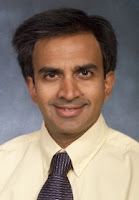Self/less and transplanting (ID)entities
by Karen Rommelfanger I recently sat on a panel discussion for an early screening of the movie Self/less . I'm quoted (mostly correctly) with my name (mostly) spelled correctly here . In Self/less , an aging business tycoon with a terminal illess (played by Ben Kingsley ) pays to "shed" his skin for a new, younger, fitter body (played by Ryan Reynolds ). See trailer above. The film, despite the futuristic theme, revisits mundane themes of the Faustian tradeoff or a deal with a devil, ultimately conveying the message that the costs, even for the rich, are too high when trying to cheat death. The title of the movie implies that for the greater good the selfless thing to do is to just die as nature intended. While the film would surely be categorized as science fiction, there are entrepreneurs quite dedicated to making such a possibility a reality. For example, the 2045 Initiative promises, for the starting price tag of $3 million, that your brain can be downloaded and that...


